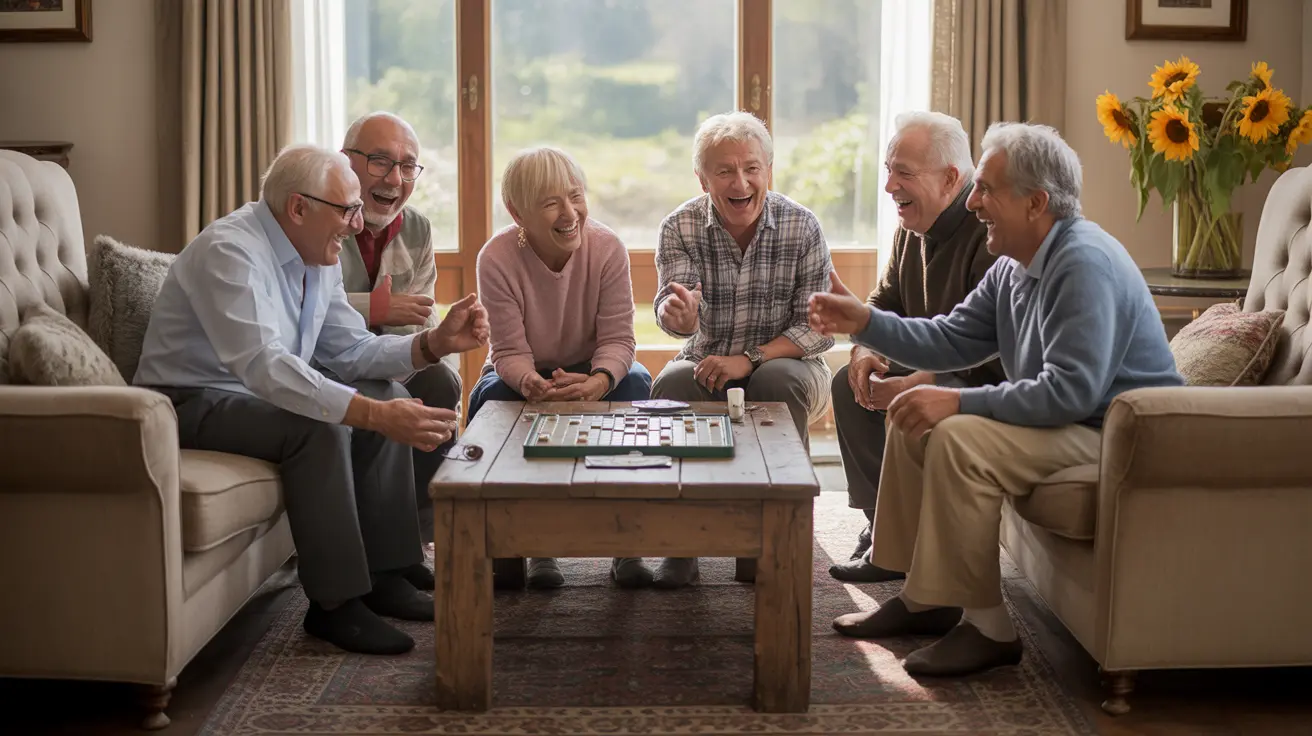When it comes to supporting individuals with dementia, engaging in appropriate games and activities can play a crucial role in maintaining cognitive function and enhancing quality of life. Understanding which games are most beneficial and how to implement them effectively can make a significant difference in dementia care and management.
This comprehensive guide explores various types of games and activities that can help people with dementia stay mentally active, socially engaged, and emotionally connected to their environment and loved ones.
Traditional Board Games and Card Games for Cognitive Stimulation
Board games and card games offer excellent opportunities for cognitive engagement while promoting social interaction. Simple card games like Go Fish or Snap can help maintain attention span and pattern recognition skills, while classic board games like checkers or simplified versions of chess can support strategic thinking abilities.
When selecting board games for people with dementia, consider:
- Games with clear, simple rules
- Activities that match the person's current abilities
- Games that can be modified as cognitive function changes
- Options that encourage social interaction
Word Games and Puzzles for Mental Stimulation
Word games and puzzles provide targeted cognitive exercise while being enjoyable and engaging. These activities can help maintain language skills and memory function, particularly in the early to middle stages of dementia.
Effective word-based activities include:
- Large-print crossword puzzles
- Word search games with familiar themes
- Simple word association exercises
- Picture-word matching games
Memory-Based Activities and Games
Memory games specifically designed for people with dementia can help exercise recall abilities while providing a sense of accomplishment. These activities should be structured to avoid frustration while maintaining engagement.
Recommended Memory Activities
Consider incorporating these memory-enhancing games:
- Picture matching cards
- Simple sequence memory games
- Photo-based reminiscence activities
- Musical memory games
Digital and Virtual Reality Games
Modern technology offers new opportunities for cognitive stimulation through digital games and virtual reality experiences. These platforms can provide immersive, interactive experiences while allowing for personalization and progress tracking.
Benefits of digital gaming platforms include:
- Adjustable difficulty levels
- Immediate feedback and rewards
- Interactive sensory experiences
- Progress monitoring capabilities
Creating an Effective Gaming Schedule
Establishing a regular routine for gaming activities can help maximize their benefits while preventing overwhelming situations. The key is to maintain consistency while remaining flexible to accommodate changing needs and energy levels.
Frequently Asked Questions
What types of games are most beneficial for people with dementia to improve cognitive function?
Memory matching games, simple board games, and picture-based activities tend to be most beneficial. These games provide cognitive stimulation while being enjoyable and manageable for people with dementia. Activities that combine social interaction with mental engagement often yield the best results.
How do word games and puzzles help slow cognitive decline in dementia patients?
Word games and puzzles help maintain language skills, processing speed, and problem-solving abilities. They stimulate multiple areas of the brain simultaneously, potentially helping to maintain neural connections and cognitive function. Regular engagement with these activities can support mental agility and verbal communication skills.
Can playing board games improve memory and social skills in people with dementia?
Yes, board games can significantly improve both memory and social skills. They provide structured social interaction while exercising cognitive functions like strategic thinking, memory, and pattern recognition. The social aspect of board games also helps maintain communication skills and emotional connections.
Are video games or virtual reality games effective for cognitive training in dementia care?
Digital games and virtual reality experiences can be effective tools for cognitive training when appropriately designed for people with dementia. They offer engaging, interactive experiences that can be customized to individual abilities and preferences while providing immediate feedback and achievement recognition.
How often should people with mild cognitive impairment engage in brain-stimulating games for best results?
People with mild cognitive impairment should aim to engage in brain-stimulating games for 20-30 minutes daily, preferably at times when they feel most alert and receptive. It's important to maintain regular participation while being mindful of fatigue and avoiding overwhelming situations.




